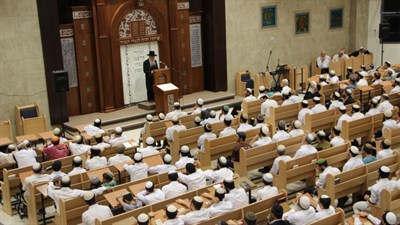Ein AyaQuality Over Quantity- Countless Ramifications
As mankind matures (similar to the individual child), we all realize that it's generally a mistake to go after quantity, at the expense of quality. Children and primitve man thought that "bigger is better", but today's tiny computer chips and laser warfare teach man what Judaism always knew. Rav Kook explains this important idea with so many ramifications in life and Torah, via the letter Yud, which is the smallest letter, and rationally explains its Kabbalistic meanings and usage. The class is a great example of how Rav Kook harmonizes and combines rational philosophy and logical Kabbala.











